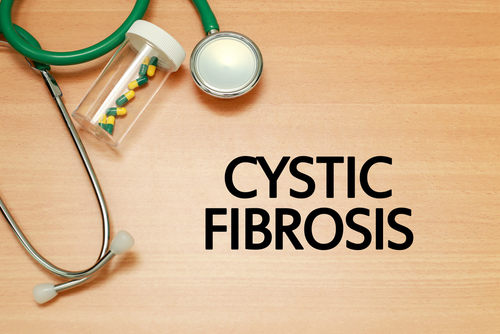Orkambi Reduces Main Biomarker of CF, Vertex Says in Updated Results on Four Therapies
Written by |

Orkambi (lumacaftor/ivacaftor) reduced levels of the main biomarker of the lung disease cystic fibrosis and improved the nutritional status of children with the condition, according to a Phase 3 clinical trial.
The results were part of a recent update that Vertex Pharmaceuticals provided on Orkambi and three of its other CF therapies, Kalydeco (ivacaftor), tezacaftor (VX-661) and VX-371.
Vertex conducted the Phase 3 trial (NCT02797132) of Orkambi to evaluate its effectiveness and safety in preschoolers with two copies of the CFTR gene’s F508del mutation. The 60 children were aged 2 to 5. Mutations of the gene cause CF by producing faulty versions of the CFTR protein.
An indication of Orkambi’s effectiveness in the trial was that it reduced the production of the children’s sweat chloride and improved their nutritional status.
A sweat test is the gold standard for diagnosing CF because people with the disease have more chloride in their sweat than those who don’t. As for nutrition, the thick mucus that CF produces in the digestive system can prevent patients from absorbing nutrients and fat properly, leading to difficulty gaining weight and slower growth. CF also produces the mucus in lungs and other organs.
The Phase 3 trial also showed that Orkambi was safe and that the children tolerated it well. Researchers reported no adverse events besides those seen in studies of patients aged 6 to 11.
Based on the promising results of the trial, Vertex plans to submit a New Drug Application on Orkambi to the U.S. Food and Drug Administration during the first quarter of 2018. It will also ask the European Medicines Agency to extend the therapy’s availability to very young children.
Another Phase 3 trial (NCT02412111) that Vertex conducted evaluated a combination of tezacaftor and Kalydeco’s ability to reduce respiratory problems in patients more than 12 years old.
The study included 151 participants at 68 sites in the United States, Canada, Australia, and the European Union. The patients had one copy of the F508del mutation and one copy of another CFTR mutation.
Eight weeks of treatment with the combo led to a negligible improvement in a measure of patients’ lung function known as forced expiratory volume in one second, or FEV1. This is the amount of air that people can forcefully blow out of their lungs in one second.
The combo did lead to a reduction in sweat chloride that was larger than Kalydeco generated alone, however.
Given the results, Vertex has decided not to continue pursuing regulatory approval for the combo. One reason is that most patients older than 12 are eligible to receive Kalydeco by itself.
The FDA is expected to make a decision by February 2018 on a related New Drug Application that Vertex has filed. That application involves using the tezacaftor-Kalydeco combo to treat patients aged 12 or older who carry two copies of an F508del mutation or one copy of an F508del mutation plus another mutation. The FDA is giving the request priority review.
European regulators are expected to decide whether to approve the combo therapy in the second half of 2018.
Vertex has completed enrolling children 12 to 24 months for another Phase 3 trial (NCT03277196) of Kalydeco. It will evaluate the therapy’s safety in children less than 2 years old with a CFTR gating mutation and an R117H mutation.
The FDA has already extended Kalydeco’s use to more than 600 patients with rare CFTR mutations and to about 900 patients with any of 33 other mutations.
Vertex also announced the latest results of a Phase 2 trial (NCT02709109) evaluating VX-371 as a CF therapy. The compound is designed to prevent an increase in sodium levels, which, like high chloride levels, are associated with CF. Vertex is developing VX-371 in collaboration with Parion Sciences.
The trial involved 142 adolescents and adults with CF who have two copies of the F508del mutation. Patients received either a combination of VX-371 and Orkambi or a placebo and Orkambi for up to 28 days.
Researchers said the combo failed to improve patients’ condition, compared with Orkambi alone. It was safe and patients tolerated it well, however.
Vertex also said it will continue testing different triple-combination therapies for CF.
“We look forward to continued progress in 2018 with the anticipated approval of our third CF medicine, and advancement into pivotal development of our portfolio of triple-combination regimens, which have the potential to treat nearly all CF patients in the future,” Dr. Jeffrey Leiden, the chairman, president and chief executive officer of Vertex, said in a press release.
Scientists estimate that CF affects around 30,000 Americans.






